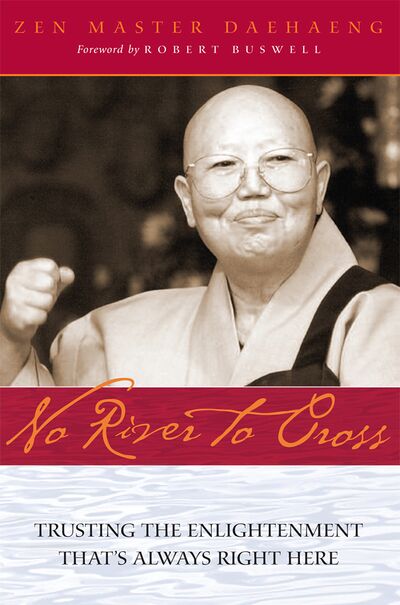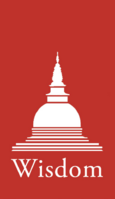No edit summary |
No edit summary |
||
| (3 intermediate revisions by the same user not shown) | |||
| Line 9: | Line 9: | ||
*{{i|A Brief Biography of Daehaeng Kun Sunim|xiii}} | *{{i|A Brief Biography of Daehaeng Kun Sunim|xiii}} | ||
*'''PART ONE : PRINCIPLES''' | *'''PART ONE: PRINCIPLES''' | ||
*{{i|Chapter 1: Fundamental Questions|3}} | *{{i|Chapter 1: Fundamental Questions|3}} | ||
**{{i|Who Am I?|3}} | **{{i|Who Am I?|3}} | ||
| Line 28: | Line 28: | ||
'''PART TWO: CULTIVATING MIND''' | '''PART TWO: CULTIVATING MIND''' | ||
*{{i|Chapter 4: The Essence of Mind|31}} | *{{i|Chapter 4: The Essence of Mind|31}} | ||
**{{i|What Is Mind?|31}} | |||
**{{i|The Profound Ability of Mind|33}} | |||
**{{i|The Thoughts that We Give Rise To|34}} | |||
*{{i|Chapter 5: Belief Is the Key|39}} | |||
*{{i|Chapter 6: Entrust and Observe|41}} | |||
**{{i|Entrust and Let Go of Everything|41}} | |||
**{{i|How to Let Go|47}} | |||
**{{i|The Virtue and Merit of Letting Go|49}} | |||
**{{i|Unceasing Practice|51}} | |||
**{{i|Gwan (Observing)|56}} | |||
*{{i|Chapter 7: Enlightenment|59}} | |||
**{{i|The Path to Awakening|59}} | |||
**{{i|Seeing Your Inherent Nature|60}} | |||
**{{i|Becoming a Buddha|62}} | |||
**{{i|Nirvana|63}} | |||
**{{i|The Middle Path|64}} | |||
**{{i|The Virtue and Merit of Awakening|65}} | |||
*'''PART THREE: APPLYING THE PRINCIPLE OF ONE MIND''' | |||
*{{i|Chapter 8: The Essence of Buddhism Lies in Applying and Experiencing|69}} | |||
*{{i|Chapter 9: Practice in Daily Life|71}} | |||
**{{i|Life Itself Is Dharma|71}} | |||
**{{i|Handling Difficulties and Suffering|72}} | |||
**{{i|Illness|73}} | |||
**{{i|Money and Prosperity|75}} | |||
**{{i|Family|76}} | |||
**{{i|True Love|78}} | |||
**{{i|Happiness and Harmony|78}} | |||
*{{i|Chapter 10: Religion and Daily Life|81}} | |||
**{{i|Teachers and Learning the Path|81}} | |||
**{{i|Bowing|82}} | |||
**{{i|Keeping the Precepts|84}} | |||
**{{i|Sutras|85}} | |||
**{{i|Reciting the Buddha's Name and Chanting Sutras|87}} | |||
**{{i|One With Your Ancestors|87}} | |||
**{{i|True Giving|89}} | |||
**{{i|Fate and Destiny|90}} | |||
**{{i|Believing in Outer Powers|91}} | |||
**{{i|Religious Conflict|92}} | |||
*{{i|Glossary|93}} | |||
*{{i|A Note about the Current Text|99}} | |||
*{{i|Notes|101}} | |||
|StopPersonRedirects=No | |||
|AddRelatedTab=No | |AddRelatedTab=No | ||
}} | }} | ||
Latest revision as of 16:51, 30 June 2023
It is often said that enlightenment means “crossing over to the other shore,” that far-off place where we can at last be free from suffering. Likewise, it is said that Buddhist teachings are the raft that takes us there.
In this sparkling collection from one of the most vital teachers of modern Korean Buddhism, Zen Master Daehaeng shows us that there is no raft to find and, truly, no river to cross. She extends her hand to the Western reader, beckoning each of us into the unfailing wisdom accessible right now, the enlightenment that is always, already, right here.
A Zen (or seon, as Korean Zen is called) master with impeccable credentials, Daehaeng has developed a refreshing approach; No River to Cross is surprisingly personal. It’s disarmingly simple, yet remarkably profound, pointing us again and again to our foundation, our “True Nature”—the perfection of things just as they are. (Source: Wisdom Publications)
| Citation | Daehaeng Sunim. No River to Cross: Trusting the Enlightenment That's Always Right Here. Boston: Wisdom Publications, 2007. |
|---|---|


